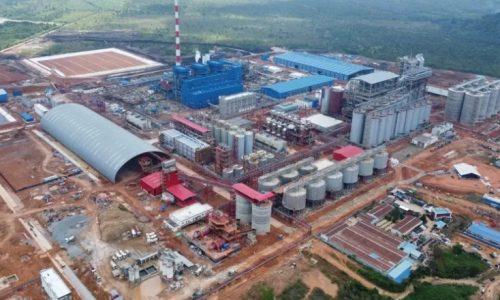The Indonesian government is making efforts to secure a limited free trade agreement (FTA) with the US and the EU. These efforts have intensified recently in order to secure access to critical minerals for Indonesia in the two largest electric vehicle (EV) markets.
Indonesia Battery Corporation (IBC) CEO Toto Nugroho stated that the certainty of a limited FTA is crucial for the nickel ore refining industry in Indonesia, which is crucial for the production of Indonesian EV batteries, to ensure a broad market in the US and European countries.
“Indonesia is doing its best to negotiate a specific free trade agreement for battery materials. If this can be achieved, it means there will be no issues with our battery materials worldwide,” Toto said on Tuesday (13/6), quoted by Bisnis.com.
US and European restrictions
As known, the US has a package of incentives for renewable energy through the Inflation Reduction Act (IRA), while the EU has the Critical Raw Materials Act (CRM), which restricts the origin of critical minerals and requires EV manufacturers to receive local government subsidies.
The IRA tightens the criteria for metallic minerals that can receive incentives for EV allocated by the US government after 2023. The law collects a subsidy fund of US$370 billion for clean technology development.
Among the criteria, it requires metallic minerals to be processed in the US, and the raw materials must come from countries that have a FTA with the US government.
There is also another concern for the US government related to the dominance of Chinese companies in Indonesia’s smelter industry.
Meanwhile, CRM is a bid to secure the resources needed for technologies such as renewable energy and battery power.
The act aims to make the EU more self-reliant in mining, processing, and recycling of critical metals and minerals, to shield the region from the impact of increasing international competition for these resources.
It would require the EU to increase domestic production as well as limit the sourcing of critical minerals from third countries by 2030.
UK’s acceptance of Indonesian critical minerals and EV battery market
However, Toto mentioned that the critical minerals and EV battery market in Indonesia has already been relatively accepted in the UK. Unlike the EU and the US, which apply discriminatory subsidies to some countries, the UK is considered open to raw materials and EV batteries from Indonesia.
“So, as we saw with the UK, it has been accepted there are no more issues, only the IRA [US] and Europe,” Toto said.
As known,The UK has shown interest to invest in Indonesia for the development of the EV battery ecosystem.
Investment Minister/Head of the Investment Coordinating Board (BKPM) Bahlil Lahadalia explained that the investment involving a consortium from the UK in building this EV battery ecosystem is in collaboration with several global companies such as EVision, Glencore, Umicore, and the national company PT Aneka Tambang (Antam).
According to Bahlil, the investment in development is estimated at around US$9 billion. If possible, they aim to accelerate the process and will cover various stages from mining to battery cells.
Bahlil also hopes that this investment will eventually be able to produce 20 gigawatt-hours (GWh) of battery cells in the first production phase. For subsequent phases, Bahlil stated that the production process can be further improved based on market demand, both domestically and internationally.









